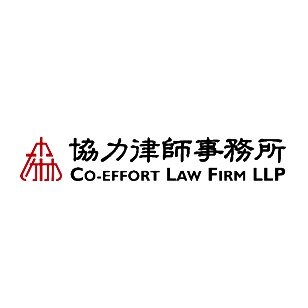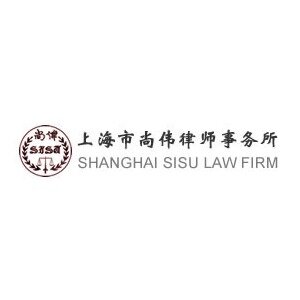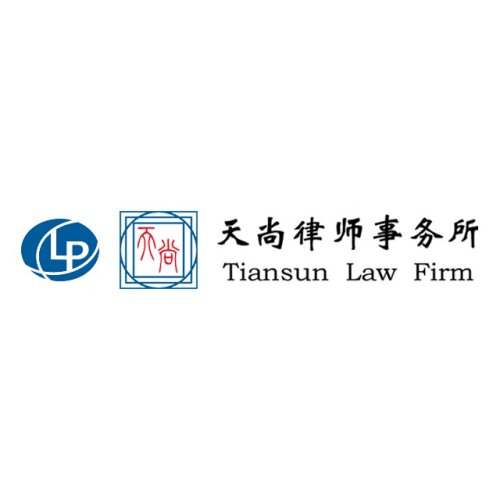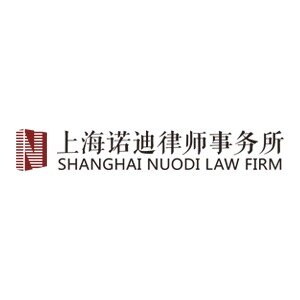Best Job Discrimination Lawyers in Shanghai
Share your needs with us, get contacted by law firms.
Free. Takes 2 min.
List of the best lawyers in Shanghai, China
About Job Discrimination Law in Shanghai, China
Job discrimination in Shanghai, China, refers to the unjust treatment of employees or job applicants based on personal attributes unrelated to their job performance. This can include discrimination on the basis of age, gender, ethnicity, disability, or other protected characteristics. Shanghai, being a pivotal economic hub, has stringent measures in place to combat job discrimination and promote fair treatment in the workplace. China's labor laws, including those that apply in Shanghai, aim at fostering equality and eliminating biases, ensuring that everyone has the right to work in a non-discriminative environment.
Why You May Need a Lawyer
There are several situations where seeking legal advice on job discrimination in Shanghai may be necessary:
- If you have been unfairly dismissed or overlooked for a promotion based on irrelevant criteria.
- Experiencing harassment or a hostile work environment due to protected characteristics.
- Disparate treatment in terms of pay, benefits, or job assignments without valid justification.
- Retaliation after filing a discrimination complaint with your employer or relevant authorities.
- Complex cases that require interpretation of local labor laws and how they apply to specific incidents.
A legal professional can provide advice on navigating these issues and represent your interests effectively, whether negotiating a solution or taking formal legal action.
Local Laws Overview
The legal framework regarding job discrimination in Shanghai is underpinned by several key regulations:
- The Constitution of the People's Republic of China prohibits discrimination and promotes equal rights for all citizens.
- The Labor Law of China sets forth provisions for equal employment and prohibits discrimination based on ethnicity, gender, religious belief, etc.
- The Employment Promotion Law emphasizes employment equality and fair treatment in hiring practices.
- The Law on the Protection of Women's Rights and Interests aims to eliminate discrimination against women and protect their lawful rights.
Shanghai aligns with national policies while also having local enactments to address specific labor-related issues within the city, ensuring a comprehensive legal structure against workplace discrimination.
Frequently Asked Questions
What constitutes job discrimination in Shanghai?
Job discrimination includes any unfair practice that adversely affects an individual's employment opportunities based on non-job-related traits like gender, ethnicity, age, or disability.
How can I prove job discrimination?
Proving discrimination may involve collecting evidence such as emails, witness testimonies, and records of discriminatory practices, alongside demonstrating that these actions affected your employment status.
Are there strict timelines for filing a discrimination complaint?
Yes, there are statutory deadlines for filing a complaint which can vary, so it's important to act promptly and seek legal advice to ensure your case is heard.
What types of remedies are available in discrimination cases?
Remedies may include reinstatement, compensation for lost wages, damages for emotional distress, or changes in company policies to prevent future discrimination.
Can I be fired for reporting job discrimination?
Retaliation against employees for reporting discrimination is illegal. If it occurs, legal actions can be taken against the employer.
Do laws exist to protect foreign workers from job discrimination?
Yes, foreign workers in Shanghai are entitled to the same protections as local employees against discrimination and unfair treatment.
Is harassment considered a form of job discrimination?
Yes, harassment based on gender, ethnicity, or other protected traits is considered discrimination, impacting an individual’s work environment.
Can employers justify discriminatory practices for business reasons?
Employers must have legitimate, non-discriminatory reasons for employment decisions; otherwise, they can face legal consequences.
Are there any specific local entities that address job discrimination?
The Shanghai Human Resources and Social Security Bureau often addresses employment grievances, including discrimination issues.
How do I initiate legal proceedings for job discrimination?
Initiating legal action generally involves consulting a lawyer, filing a complaint with relevant authorities, and gathering necessary documentation to support your claim.
Additional Resources
The following resources can provide assistance and information related to job discrimination in Shanghai:
- The Ministry of Human Resources and Social Security (MOHRSS) - overseeing labor policies and disputes.
- Shanghai Labor Arbitration Committee.
- Legal Aid Centers offering support for low-income individuals.
- Non-governmental organizations focusing on labor rights and anti-discrimination advocacy.
Next Steps
If you suspect you are a victim of job discrimination in Shanghai, consider taking the following steps:
- Document Everything: Keep record of events, communications, and any evidence that might support your claim.
- Seek Internal Resolution: Report the issue to your HR department or a senior manager to see if it can be resolved internally.
- Consult a Lawyer: Find a legal professional specializing in employment law to evaluate your case.
- File a Complaint: Depending on the lawyer's advice, file a formal complaint with appropriate local authorities or pursue legal action.
These steps can help protect your rights and ensure that appropriate measures are taken against workplace discrimination.
Lawzana helps you find the best lawyers and law firms in Shanghai through a curated and pre-screened list of qualified legal professionals. Our platform offers rankings and detailed profiles of attorneys and law firms, allowing you to compare based on practice areas, including Job Discrimination, experience, and client feedback.
Each profile includes a description of the firm's areas of practice, client reviews, team members and partners, year of establishment, spoken languages, office locations, contact information, social media presence, and any published articles or resources. Most firms on our platform speak English and are experienced in both local and international legal matters.
Get a quote from top-rated law firms in Shanghai, China — quickly, securely, and without unnecessary hassle.
Disclaimer:
The information provided on this page is for general informational purposes only and does not constitute legal advice. While we strive to ensure the accuracy and relevance of the content, legal information may change over time, and interpretations of the law can vary. You should always consult with a qualified legal professional for advice specific to your situation.
We disclaim all liability for actions taken or not taken based on the content of this page. If you believe any information is incorrect or outdated, please contact us, and we will review and update it where appropriate.

















